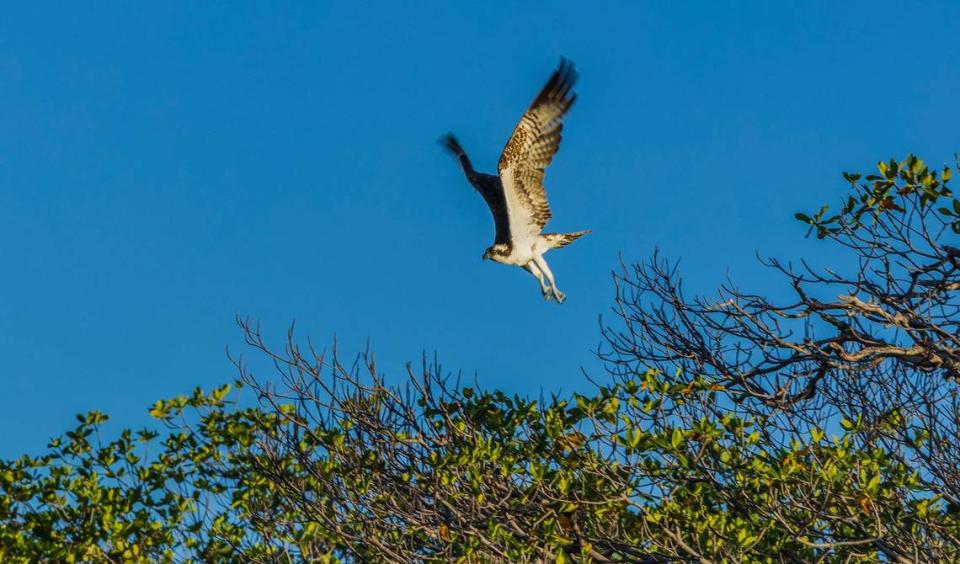For sale: Unspoiled island in Biscayne Bay. Will it be a home for birds or billionaires?
A rare unspoiled private island in Biscayne Bay has gone up for sale, boasting views of Miami’s skyline, “no traffic or people” and — thanks to a residential zoning designation — the chance to become “Miami’s most exclusive address.”
The move has alarmed environmental groups, which have long campaigned to buy and preserve Bird Key and two small adjacent islands that provide a haven for the creatures that inspired its name — herons, pelicans, magnificent frigatebirds and other coastal species. Several sleek black diving cormorants, along with an osprey, roosted in the branches during a morning visit on Thursday.
The potential sale of Bird Key — or 1 Bird Key, as it is now listed on real estate websites — has set off a scramble to scrape together cash to keep the island just south of the 79th Street Causeway out of the hands of developers.
Its long-time owner, Finlay Matheson, said he had decided it was finally time to put the rare piece of real estate on the market. He has previously flirted with the concept of selling to an environmental group or government agency. But after birds largely stopped nesting on the islands in 2019, he said, the offers to conserve it dwindled.
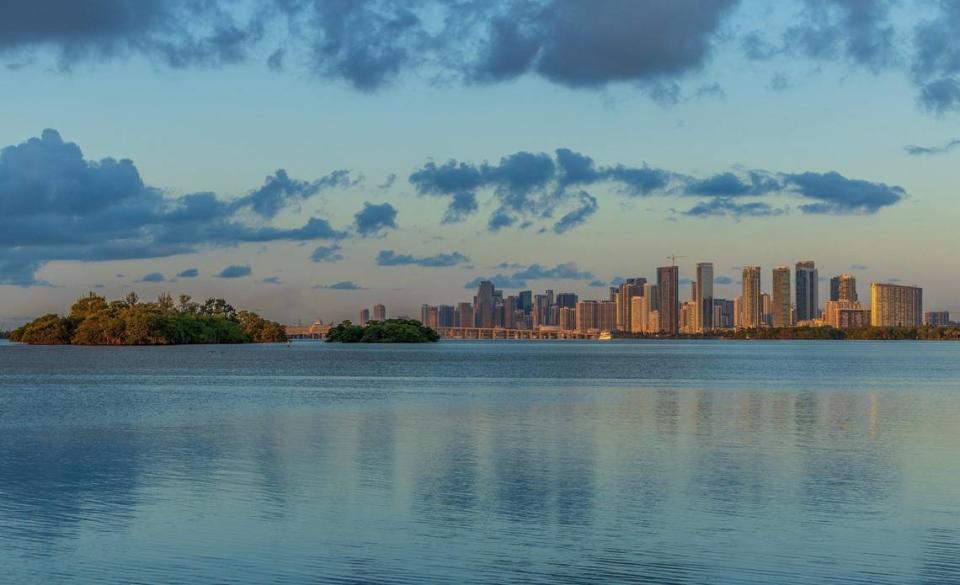
“I’m 80 years old and I bought it almost 40 years ago,” he told the Miami Herald. “The real estate market is hot in Miami, and now is the right time to sell it.”
Matheson isn’t your typical landowner. He’s a member of the pioneering Matheson family, which has a long history of protecting wild lands in Miami-Dade, including donating some 800 acres to create Crandon Park as well as the land for Miami-Dade’s first public park, Matheson Hammock
He first bought the Bird Key property, which includes 37 acres of surrounding bay bottom, in 1986 for $36,000. After 40 years, he’s now listing it for $31.5 million.
He’s explored a number of options over the years , telling the Herald in 2012 that Bird Key’s “highest and best use” was for some developer to buy and agree to preserve it — in exchange for permission to build in a less sensitive wetland, an exchange known as “mitigation.” Matheson said he also tried to sell it to the state a decade ago, but the deal fell through. And he he said he has since grown tired of waiting for environmentalists to take it off wish lists and make an actual offer.
For decades, Miami-Dade County has had Bird Key on its list of environmentally endangered lands, properties it hopes to buy and save from development. Last year, the county said, it offered to purchase Bird Key from Matheson through its nonprofit partner, The Nature Conservancy.
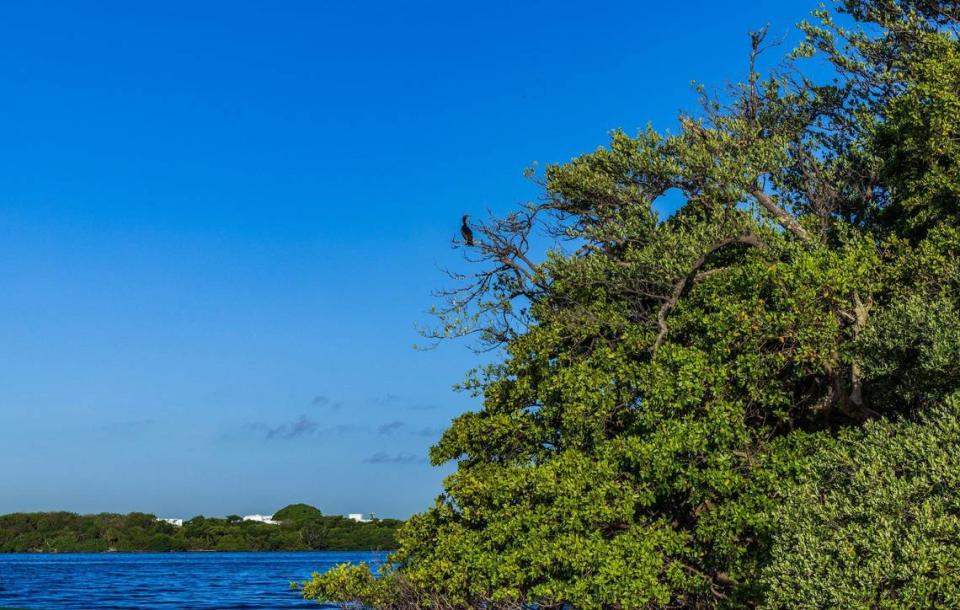
According to TNC, the offer wasn’t accepted. According to Matheson, he never heard an actual number, and the initial talks never materialized into a real offer.
“That’s what prompted me to put it on the market. Let’s see what the market does,” he said.
Despite both sides acknowledging discussing a potential sale in 2023, Matheson said he has never had a formal offer from any environmental group or government agency to preserve the island.
“Nobody has ever — from the county, the city or the state — has made an offer or indicated that they wanted to buy it,” he said. “Nobody has stepped forward.”
A race to buy
Matheson listed the island for sale on April 26, a move first reported by the Miami New Times, and he said it’s received “a lot of attention” from potential buyers in recent weeks, including some international buyers.
That has environmentalists worried.
They see the island as an important refuge for birds across the country, and the oldest recorded rookery in Biscayne Bay. The island is a stop on the Atlantic Flyway, a superhighway for migrating birds traversing North America. On Bird Key, they have a chance to rest, away from predators like raccoons and outdoor cats.
“We consider those islands really important marine sanctuaries,” said Lauren Jonaitis, senior conservation director of the Tropical Audubon Society. “They’re extremely important and if we lose them to development, we won’t see as many birds.”
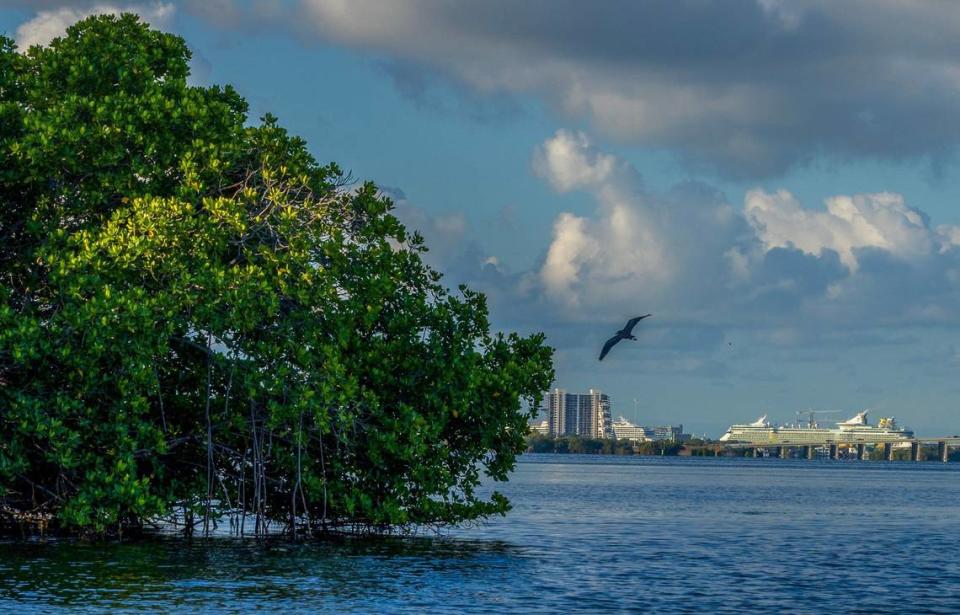
Birds of all kinds, including state-threatened little blue herons and great blue herons, have called Bird Key home for decades. But in 2019, the rookery collapsed. Since then, no nests have been documented.
In the most recent survey of the island, done by the state on March 28, researchers found five bird species there, including little blue herons, but no nests. Nearby spots like Mangrove Island had dozens more birds and 31 nests.
Matheson said he took a prospective buyer out to the island last week and saw no birds. However, Jonaitis said, that doesn’t mean birds have abandoned the key altogether. The Herald, on an early morning visit, counted a handful of species and birds, including what appeared to be a yellow-crowned night heron emerging from inside the mangrove forest carrying a stick in its bill — sometimes an indication of nesting.
“Just because the rookery crashed doesn’t mean they won’t come back,” she said.
An ideal situation, Jonaitis said, would be to preserve the island for conservation — and for Matheson to sell the property at a price appropriate for that purpose.
What, exactly, is considered an appropriate price is at the heart of the debate. Matheson said he’s open to a “reasonable” offer from a nonprofit or government group, several of whom are already working on one.
“We are hopeful we can find a solution that can be acceptable to both parties. We know that the owner and the county have an interest in protecting the area,” Roberto Torres, TNC’s Miami-Dade Project Manager, said in a statement.
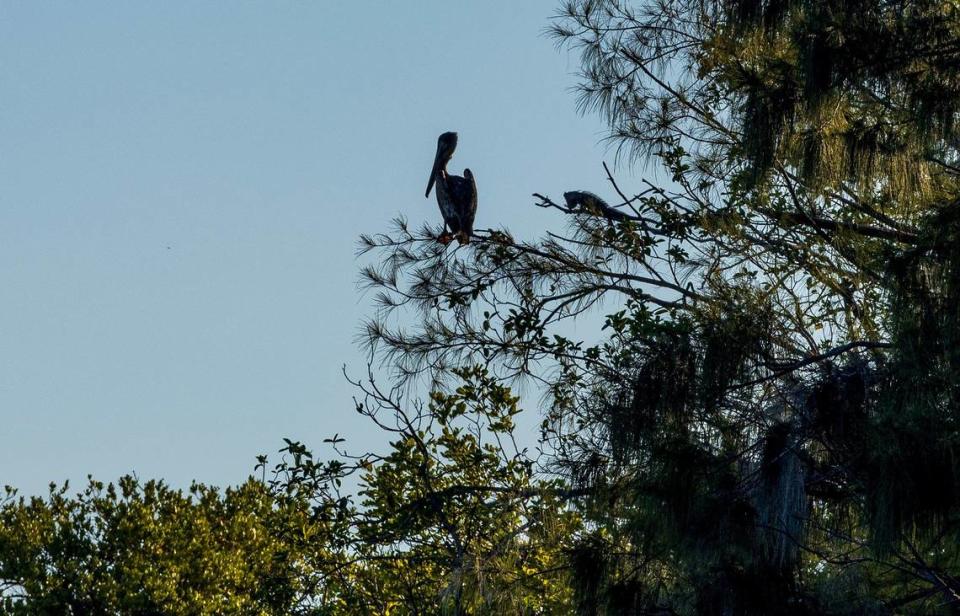
While Matheson wouldn’t name a number, he noted the only comparable property he’s aware of was a plot of six acres of submerged land — potentially available to fill in with rock and build homes on top of — in the Bay near Coral Gables. Two developers snapped up the plot for $445,000 from an 81-year-old widow, then turned around and sold it to the state in 2007 for $7.2 million, according to Herald archives.
Miami-Dade County has appraised Bird Key in the past, to help inform its offer last year, but did not respond to a public records request from the Miami Herald to release the documents
Figuring out a purchase price is one thing. The other challenge is finding the money. In recent weeks, multiple environmental groups across South Florida have been rifling through their options — maybe state funding? federal funding? local philanthropy? — to see what’s on the table.
Laura Reynolds, a board member of Friends of Biscayne Bay, said it’s a good time for environmentally-minded billionaires to step up.
“This needs to be a public treasure. It already is and needs to be protected from any kind of development proposal,” she said. “This town has a lot of capital, let’s put it together in protecting this gem.”
Can you build there?
The reason environmentalists are so nervous about the new ‘For Sale’ sign on Bird Key is the island’s other rare property — it’s zoned residential, at least by Miami-Dade County.
A new buyer could — at least, conceivably — build their own hideaway on the island, albeit an off-grid one with no connection to water, sewer or electricity.
“It is private property. We’re not a communist country. I do have some property rights,” Matheson said. “Whoever buys the island, they have property rights.”
However, all sides acknowledge, that could prove difficult — and extremely expensive.
The trio of islands are covered in protected mangroves, ringed with protected seagrass and play host to an array of protected birds. There is little in the way of actual dry land, with much of the islands nearly inundated during high tide on Thursday. Constructing anything there would likely require tons of rockfill or construction on stilts, which county, state and federal regulators would likely find highly problematic approaches in the waters of Biscayne Bay.
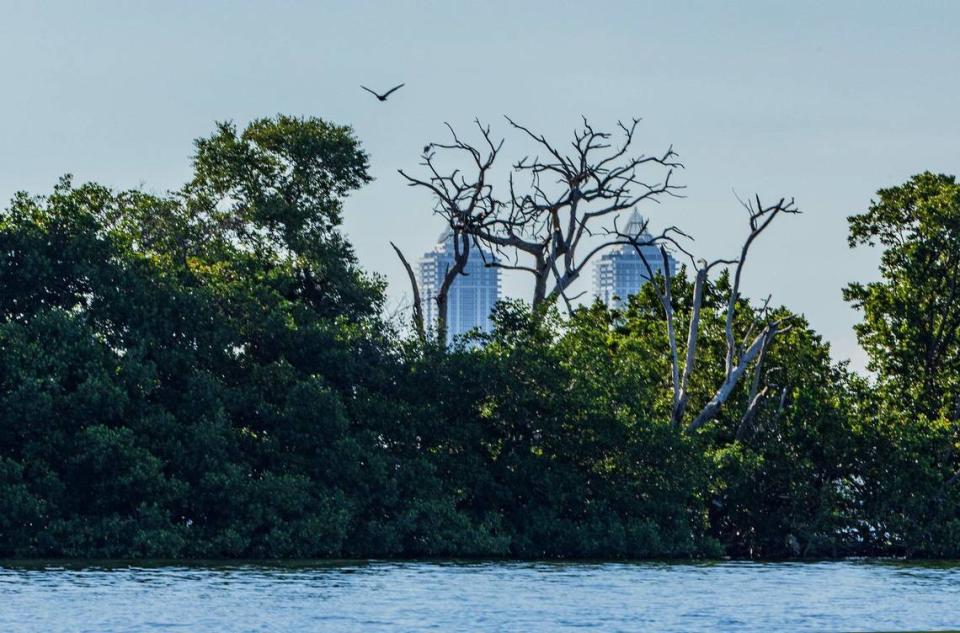
There’s also some conflicting zoning. Under the county, it’s listed as residential. But it’s also zoned as T-1 under the city of Miami’s plan, a designation that calls for the property to be left in “an essentially natural state.”
“Any construction on here is going to be extremely complicated, and I hope the buyers recognize that,” said Jonaitis. “It’s going to be complicated, not impossible.”
The property also includes the largest holdout of submerged land not included in Biscayne Bay’s Aquatic Preserve, which was formed 50 years ago, Reynolds said. That means fewer permitting hoops to jump for a developer looking to build atop surrounding seagrass beds.
That’s why she’s gravely concerned about the island falling into the hands of someone who would rather build on it than bird watch on it.
“Trying to fight on property rights in the state of Florida in the court system we have now? I’m not going to take that bet. It’s not worth it,” she said.
